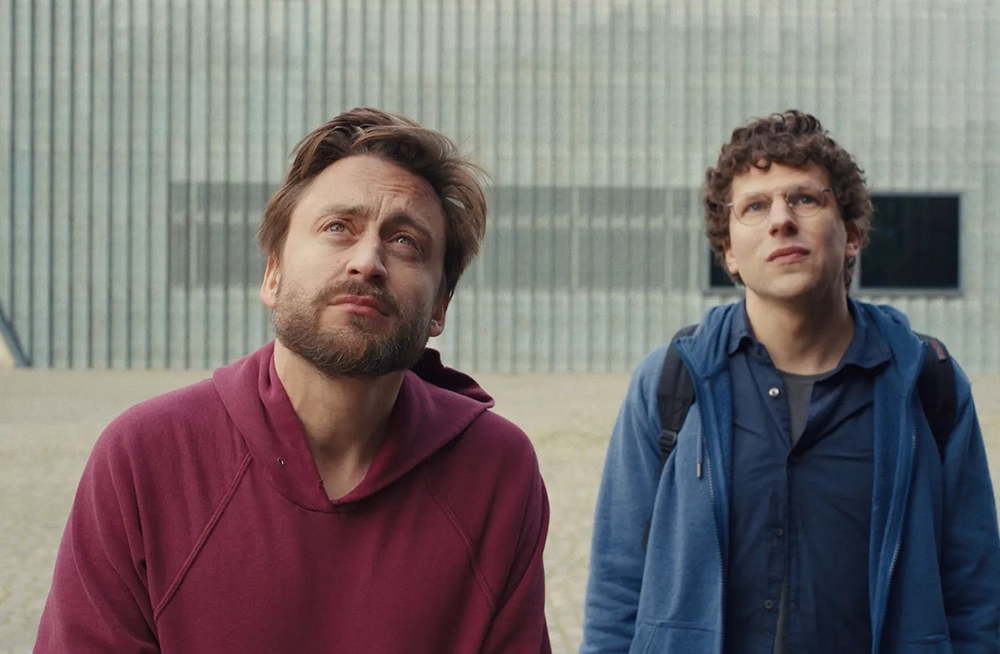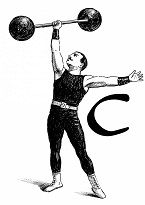At the 2022 Sundance Film Festival, Jesse Eisenberg premiered his directorial debut, “When You Finish Saving the World,” to very mixed reactions. Personally, I found it grating and thematically loose, which paved the way for a pretty unlikable experience—having half-realized views and notions about a family’s lack of connection. However, a couple of moments in the film demonstrated Eisenberg’s talent behind the camera, even though the end product wasn’t up to par. This tends to happen with the works of actors who later transition into filmmakers, particularly their debuts. They learn through each experiment they decide to tackle. This helps them grow as somewhat prominent storytellers, using their history as performers and the errors of their debut as a guide for their following picture.
A Sophomore Features That Basks in Silence
In the case of Jesse Eisenberg, he has learned plenty from his debut. He does a way better job in his sophomore work, “A Real Pain” (screening at the U.S. Dramatic Competition of the 2024 Sundance Film Festival). Eisenberg’s latest relies on his nearly two-decade acting career and the silence between moments of emotional confrontation. In most aspects, it feels different than his 2022 feature. The film still contains his tone of performance through and through. While this specific element limits how the film expresses its notions about grief, the wounding effects of the past, and trauma, it contains a brighter, more piercing heart at the forefront.
“A Real Pain” tells the story of two distanced cousins, David (Jesse Eisenberg, playing his trademarked nervous character, yet with a stronger sense of identity) and Benji (Kieran Culkin) Kaplan, who board a plane to Poland to honor their recently passed grandma—joining a tour that takes them through the country and its WW2 history. But this trip is going to be more than that. These next few days are meant for emotional breakthroughs and cleansing. The two, both separately and together, try to face the grief and trauma that the past has cursed them with. While Benji wants to cover his lament with a comedic veil, David backs away from it all and silently mourns. In essence, both are bottling things up. And those bottles reach their breaking point halfway through the trip.
“A Real Pain” is described as a “real winner” or a heartbreaker with a witty backbone. And there’s some truth to that. But there’s this artificiality that arrives within the Woody Allen-inspired comedic sensibilities that distance the film from the humanity it wants to capture. There are many moments that Eisenberg curates to fit that emotional mold, whether it is a (brilliant) dinner scene where a character pours their heart out—the best scene in the film, in my honest opinion—or just placing the camera in front of the actors so they can express the sadness gnawing their insides just with a single expression. The actor-turned-filmmaker has learned plenty from the mistakes of his debut. He ensures that his follow-up has a more defined emotional core, culminating in some delicate, honest moments.
Artificial Comedic Sensibilities Distance The Film
When Eisenberg lets silence run the show, that’s where you see the best of his abilities. As Frédéric Chopin’s compositions back “A Real Pain,” we get conversations about the side character’s reasons for joining the tour and how it intertwines with their current lives. It is in these moments that you sense the film’s importance. Even though it doesn’t separate itself from the many other films that cover these types of tours or journeys, like Asar Saban’s Berlinale selection “Delegation,” there’s a purpose behind each storytelling maneuver. But few things hold the film back from being completely effective. One of those negative aspects is the over-reliance on comedy to numb the film’s pain.
I understand that the “comedic” elements emerging from Kieran Culkin’s character are purposeful, using it as a shield to cover his true, grieving emotional state. In thematic terms, using this mechanism to develop your character in mourning makes sense. However, those comedic lines provided to him are overly thought-out (and sometimes even a bit too exaggerated). It removes him from the grounded nature of the film, as well as the rest of the cast. Culkin is a great performer, particularly when he switches from vulnerable to happy-go-lucky like it is nothing. He demonstrated this ability to the world in “Succession.” And in this film, Eisenberg wants to benefit from that gift in his screenplay.
Those couple of seconds where cinematographer Michał Dymek focuses on his facial expressions are the key to the film’s core. They tell the entire story without a single line being said—saying more with less. But as soon as the witty dialogue arrived, it planted artificial seeds that detached the project from reality. Because of these moments, of which there are plenty, I failed to connect or be captivated with the character (and the film itself) on a more profound level. “A Real Pain” has its moments of brilliance contained within the quietness of it all. And, for what it is worth, you can immediately see Eisenberg’s growth as a filmmaker. Yet, I wish there was less comedy, or if there was going to be some, write it in a manner that feels realistic rather than amplified.
“A Real Pain” screened in the U.S. Dramatic Competition as part of the Sundance Film Festival 2024.




1 Comment
” I failed to connect or be captivated with the character (and the film itself) on a more profound level. ”
That sounds like a You problem man.
Also the whole point of the movie for me was that. It “relies” as you said but it’s the whole gist, using comedy to “bottle up” other stuff I never felt it forced or amplified for me as you say in your Movie Buff review (yes I read the whole thing)
Also seriously, 2 1/2 stars man? What the hell? This movie was amazing.
Like I said you not liking this film sounds like a YOU problem because everyone in it was amazing and Eisenberg’s film storytelling AND acting was top notch 👌. And the chemistry between the two cousins. Let’s not even go there. I gave it five stars by the way I think this is a masterpiece. Even the music. Chopin was polish, what a better composer? They navigated through the music like a canoe on a lake.
I’m looking forward to reading more of your reviews!
(Posting for the 3rd time because you keep deleting my comments)